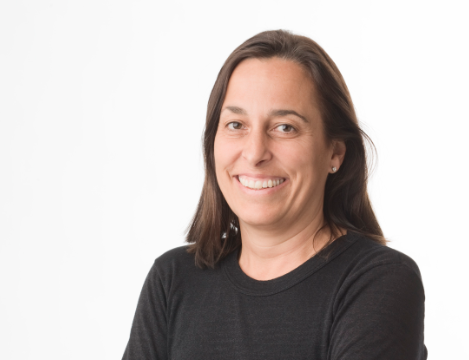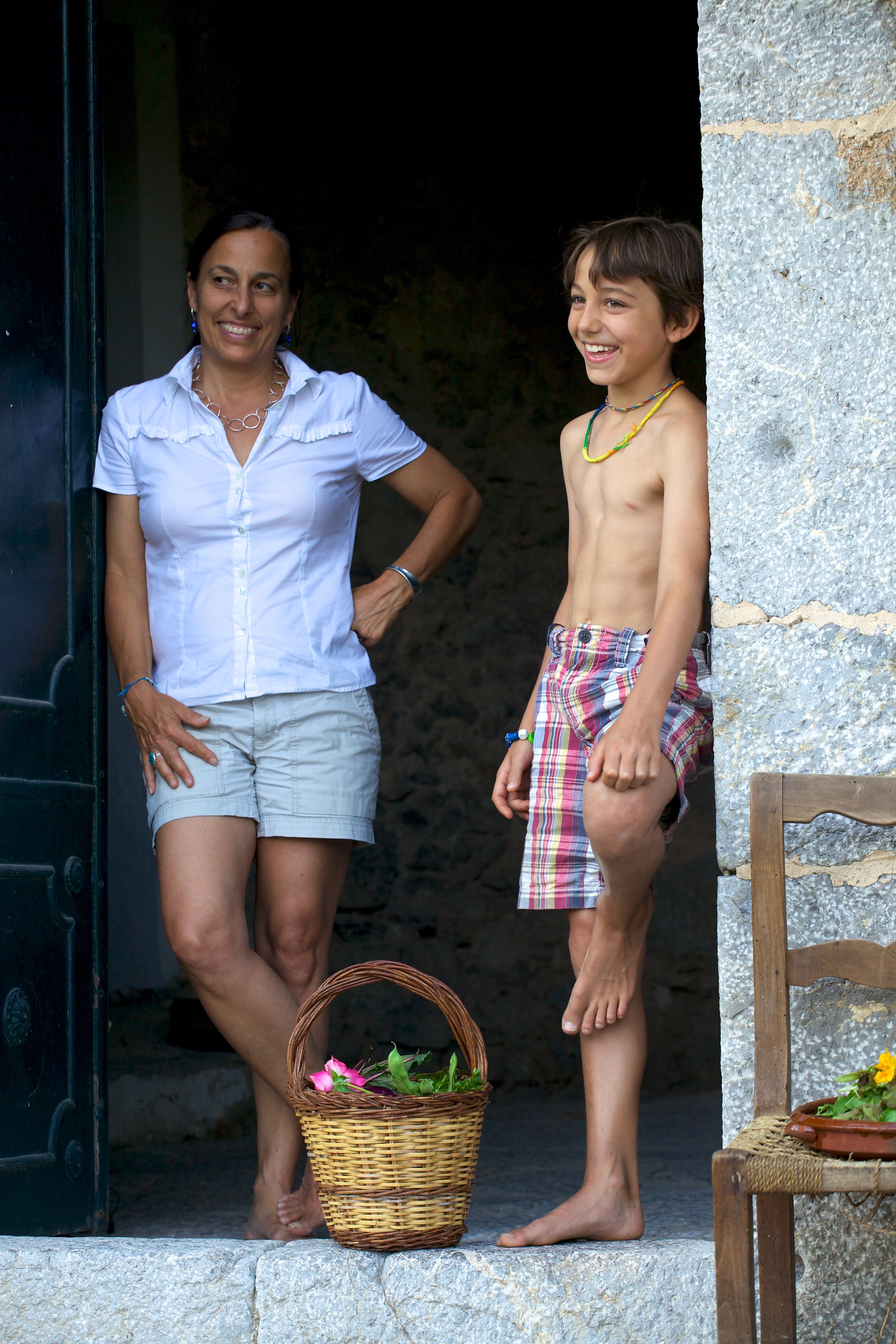The Power of Activism and an Engaged Citizenry: An Interview with Liz Barratt-Brown
by Lisa Mastny | May 28, 2012

New Dream spoke with Liz Barratt-Brown, Senior Advisor to the Natural Resources Defense Council and a New Dream board member, about her lifelong work as an environmental campaigner, as well as her more recent roles as a tar sands activist and olive oil farmer.
You’ve worked at NRDC for more than 30 years. Can you briefly describe some of the projects you’ve been involved with?
Most of my career has been with NRDC’s International Program, which works closely with Canadian groups and indigenous peoples. For that reason, we were the first group in the U.S. to really focus on the extraction of oil from Canada’s tar sands, and that has been my primary focus for the last five years or so. But I have also worked closely with our Canadian partners on acid rain, global warming, hydropower, and logging, including fighting clearcut logging in the Great Bear Rainforest in British Columbia. That campaign resulted in the protection of 5 million acres of forests, while still allowing First Nations people to stay on the land and live as they have for centuries. But as importantly, what is being created there is an important model for sustainable development in other embattled wild places around the world.
You also helped spearhead a successful campaign in the late 1990s to get more than 200 companies, including Home Depot and Starbucks, not to buy wood products originating from old-growth forests. How did you achieve this game-changing victory?
The Great Bear Rainforest campaign actually built on the successes in Clayoquot Sound on Vancouver Island’s west coast. It was one of the first major campaigns to successfully highlight the connections between producer supply chains, consumption, and environmental destruction. We asked U.S. companies to join us by agreeing not to buy products from important and endangered forests. At first, the focus of our work was on British Columbia’s temperate rainforests. But then it spread to other forests and ultimately to a global mapping project to identify all biologically and culturally important forests.
In the beginning, companies were nervous about being involved with a controversial issue, but they came to understand that through their purchasing, they were already involved. We helped create alternatives, such as Forest Stewardship Council-certified products, and in doing sent a strong message to British Columbia and other jurisdictions that they had to conserve significant areas and change how they logged. In those days, few companies had staff to deal with these issues. Now most do. What was really exciting was that our members could be engaged. Almost everyone lives near a Home Depot, a Staples, or a Starbucks. Ultimately, 400 companies took the pledge not to buy products derived from old-growth forests.
Today, you’re on the front lines in the battle to halt the Keystone XL pipeline and other efforts to transport tar sands oil from Canada. Do you remain hopeful that these projects can be halted permanently?
The oil industry is the most powerful corporate actor in the world. It is incredible that we have been able to stop the Keystone XL pipeline to date. But we have done it working with a broad coalition, from ranchers and native Americans, to clean energy businesses and religious leaders, to the Tea Party in Texas. People have really responded and said enough is enough. You can’t run a dirty tar sands pipeline across some of the most important freshwater aquifers in the country to ship oil anywhere in the world.
People are also upset by what’s happening in Canada. They’ve seen the horrific pictures of a beautiful blue-green forest turned into a strip mine. They’ve heard that the native people who have lived there for thousands of years can’t drink their water and are dying of strange cancers. We know we can’t afford to scrape the bottom of the barrel and sacrifice our land and waters, our atmosphere, and really our chance to create a clean energy future. So I am hopeful that this campaign, and the campaign to stop the Northern Gateway pipeline (ironically this would terminate at the top of the Great Bear Rainforest), will be successful, and investors will start to see that maybe there isn’t an endless boom ahead in the tar sands. Stay tuned—TransCanada has just reapplied for a permit for Keystone XL and the pipeline has become the darling of “drill baby drill” proponents.
 When you’re not busy waging large environmental campaigns, you own and run a historic farm in Spain that produces organic olive oil using traditional methods. Can you describe how you got involved in this, and in the broader movement for “slow food”?
When you’re not busy waging large environmental campaigns, you own and run a historic farm in Spain that produces organic olive oil using traditional methods. Can you describe how you got involved in this, and in the broader movement for “slow food”?
My father lived in Mallorca, Spain, for nearly 30 years. When he died, I inherited his large working olive and sheep farm on the side of a mountain. Working with my family (even the kids work hard), we now produce a delicious olive oil. The farm and oil is certified as organic (for which we get government support) and has recently been registered as “slow food.” That’s because we harvest the olives and care for the land the old-fashioned way—largely by hand.
We have been lucky to host many cheerful volunteers—mainly through WWOOF (Worldwide Opportunities on Organic Farms)—who pull up their sleeves and help us with every aspect of the farm. It’s a really beautiful and historic place. Many of the terrace walls were built by the Moors before they were banished from Mallorca in the 13th century. That gives me a great respect for what’s come before and a sense of responsibility for our little slice of its history.
On a personal level, how did you first get interested in environmental issues and activism?
I grew up next to a nature center. When I was 10, my mother asked me if I wanted winter boots or frog-catching boots. Well, I went through the winter wearing thick wool socks to keep my feet warm in those rubber boots! I knew from an early age that I wanted to be an environmental attorney but I had the Perry Mason model in mind. As it’s turned out, I haven’t spent much time in court but I’ve worked on environmental law and policy at all levels—local, national, and international. It’s been an incredible experience.
What do you see as more effective in bringing about social and environmental change—changes in policies and legislation, or changes in individual behavior?
We need both. Individual behavior can make a difference in and of itself but it can also change politics and policies. Research shows that once people start to change their behavior they get much more interested in the policies that support that change. Individuals can also change corporate behavior. ForestEthics, a group that sprang out of our B.C. campaign, now has over two-dozen companies that have pledged not to transport their products using fuel derived from tar sands oil. These are all companies that are seeking a positive environmental brand image, and that brand depends on whether the public trusts them. The most important thing is to engage however you can. We need an active public pushing back on the powerful forces protecting the status quo.
Based on your decades of campaigning, are there tools and approaches that you have found to be particularly effective in bringing about environmental change?
Maybe the most important precedent to action is access to information. Without good information, it is hard to be an effective advocate. Governments and companies know that, and sometimes it is really hard to get basic information—what chemicals are stored where, what chemicals are added to our food and consumer products, what chemicals are even in the oil that’s pumped through our pipelines (we don’t know the composition of diluents added to tar sands oil to enable it to be pumped through pipes—this has made cleaning up the huge spill in the Kalamazoo River two years ago really difficult). Access to information puts the truth in the hands of the public. That is a powerful thing.
You’ve been a member of the board of the Center for a New American Dream for more than a decade. What drew you to New Dream, and what role do you see the organization playing in addressing the kinds of social and environmental challenges you discussed above?
I love the main question posited by New Dream: what do you want more of? That simple question is so powerful. After my dad died, I had to sort through an incredible amount of stuff. Fifteen years later, I am still dealing with it. I love New Dream’s focus on the things that actually make people happy—spending time with family and friends, being engaged in your community, being in nature, just having breathing space to be in the moment. It’s still a huge challenge for me and I am sure I gravitated to New Dream for that reason.
I am excited about the organization’s more recent focus on how we can change our economic system, looking at alternative models, revisiting ways things worked before we became “consumers”—sharing and trading, helping each other, and keeping healthy economies going at the local level. I think we can recover that because it is very much at the heart of American history and culture.
To learn more about the Pedruxella olive and sheep farm in Mallorca, Spain, and how you can visit it as either a volunteer or renter, check out the farm's website.
Liz Barratt-Brown joined the Natural Resources Defense Council in 1981 and has worked with NRDC’s International Program for more than 20 years, covering issues such as acid rain, protection of old-growth forests, and stemming the expansion of the Alberta tar sands. Her team is among the groups leading the campaign to stop the Keystone XL pipeline, a pipeline from the Canadian tar sands region to the U.S. Gulf Coast. To learn more, visit stopdirtyfuels.org, and take action at stoptar.org.

